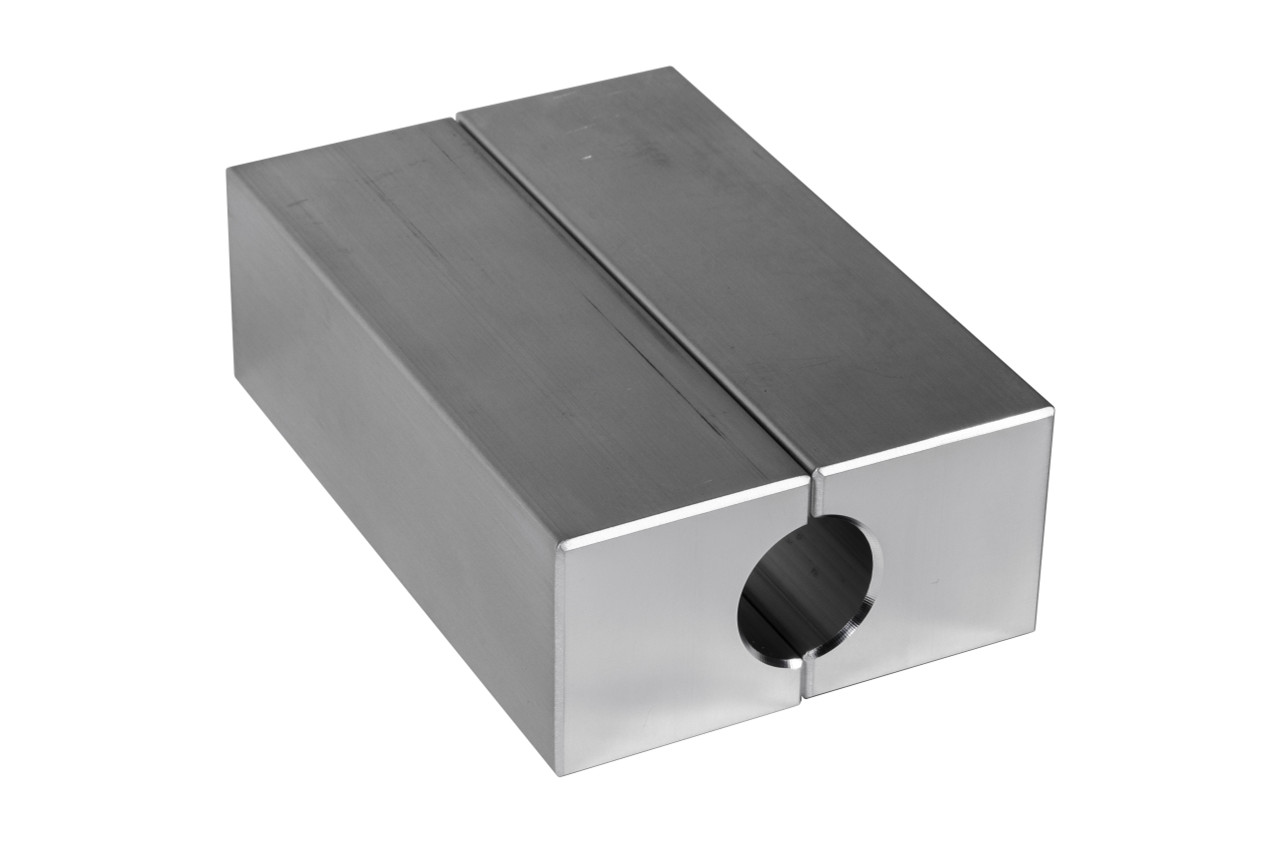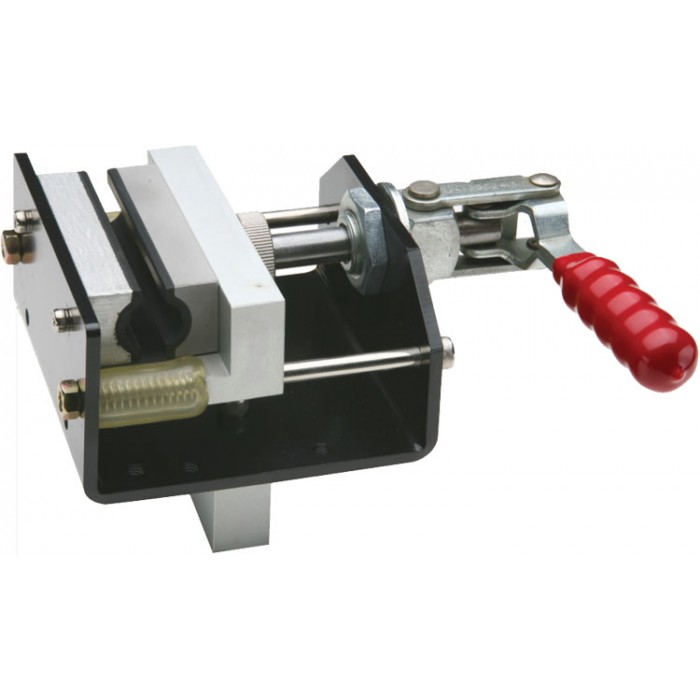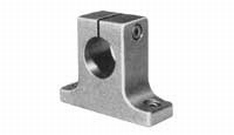Product Description
Product Description
High Precision CNC Machining Service Aluminum Parts Locating Cylinder Shaft Collar
Product Parameters
| Processing | CNC Machining, CNC Milling and Turning, Drilling, Grinding, Stamping, Tapping, Bending |
| Surface Treatment | Electroplating, Anodizing, Polishing, Chrome Plating, Zinc plating, Nickel plating, Electrophoresis, Sandblasting, Passivation, Powder Coating, Painting, etc. |
| Certifications | ISO9001:2015 IATF16949:2016 |
| Service type | OEM and ODM |
| Tolerance | +/-0.005mm |
| Surface Roughness | Ra0.8 |
| Dimensions | According to Customer’s Drawing |
| Processing Equipments | CNC Machining Center, CNC Milling Machine, CNC Turning Machine, CNC Gantry, Vertical CNC center, Horizantal CNC center, Drilling Machine,Grinding Machine, etc. |
| Testing Equipments | CMM,Laser Precision Detection Projector, Pull Tester, Automatic Optical Inspector, Salt Spray Tester, Durometer, Tensile Machine Calipers |
| Application | Automotive industry, Medical DeviceS, UAV Industry, Communication Electronics Appliance, Robot, Mold Components Processed and Fixrure, Oil, Gas and Other Heavy Equipments. |
| Drawing Format | PDF/JPEG/AI/PSD/CAD/Dwg/Step/LGS |
| MOQ | 1 piece |
| QC Policy | 100% inspection with report, random inspection before shipment, third-party inspections can be provided CZPT request |
| Packaging | PE bags or bubble bags, boxes, cartons, pallet or as per customers’ requirements |
| Trade Terms | EXW, FOB, CIF, As per customers’ request |
| Payment Terms | L/C, T/T, D/P, Western Union, Paypal, Money Gram, etc. |
| Delivery Time | 7-14 working days after deposit payment received for samples,official orders negotiable |
| Production Capacity | 1000000pcs/Months |
Company Profile
Production Line
Equipments List
Certifications
FAQ
1: Are You a Manufacturer?
Yes, we specialize in manufacturing of CNC machining parts over 20 years.
2. When Can I Get the Price?
Quotation will be provid within 24 hours after inquiry is received with full product information and drawing.
3: How Long is Your Delivery Time?
It’s depends on the products requirements ang quantity. Normally the mass order lead time is around 14-20days.
4: How Can You Asure the Quality?
100% inspection and we could provide full inspection reports as customer requests before shipment.
5: Do You Provide Samples ?
Yes, we can provide samples, please provide full product information and drawing.
6: Why Choose Us?
We have advanced technology and equipment, world-class team for techincal and aftersales service. We provide high quality product ,competitive price with fast lead time
/* January 22, 2571 19:08:37 */!function(){function s(e,r){var a,o={};try{e&&e.split(“,”).forEach(function(e,t){e&&(a=e.match(/(.*?):(.*)$/))&&1
| Application: | Auto and Motorcycle Accessory, Hardware Tool, Machinery Accessory |
|---|---|
| Standard: | GB, EN, ASME |
| Surface Treatment: | Electroplating |
| Production Type: | Batch Production |
| Machining Method: | CNC Machining |
| Material: | Steel, Brass, Alloy, Copper, Aluminum, Iron |
| Samples: |
US$ 15/Piece
1 Piece(Min.Order) | |
|---|
| Customization: |
Available
| Customized Request |
|---|

Can I purchase aluminum collars with specific features suitable for use in electronic equipment?
Yes, you can find aluminum collars with specific features tailored for use in electronic equipment. These collars are designed to meet the unique requirements of electronics applications. Here’s how to find them:
- 1. Manufacturer’s Product Catalogs: Collar manufacturers often produce product catalogs that include collars designed for electronics. Look for features such as lightweight materials, corrosion resistance, and precision engineering.
- 2. Online Suppliers and Distributors: Search for online suppliers and distributors specializing in electronic components. They may offer a selection of aluminum collars with features suitable for electronic equipment.
- 3. Aerospace and Defense Suppliers: Companies that supply the aerospace and defense industries often have collars designed for electronic equipment in demanding environments. Explore their offerings for high-quality options.
- 4. Technical Specifications: Pay attention to technical specifications provided by collar manufacturers. Focus on features like material composition, size, weight, and resistance to environmental factors that are critical in electronics applications.
- 5. Custom Collar Manufacturers: Some manufacturers offer custom collar design services. You can work with them to create collars with specific features tailored to your electronic equipment needs.
- 6. Corrosion Resistance: Select collars with corrosion-resistant properties, which are essential in electronic equipment exposed to various environmental conditions, including moisture and chemicals.
- 7. Lightweight Materials: Choose aluminum collars made from lightweight alloys to minimize the weight of electronic equipment, making them suitable for aerospace and portable devices.
- 8. Precision Machining: Collars with precision machining and tight tolerances ensure a secure fit on electronic components, shafts, or connectors, enhancing overall performance.
- 9. Vibration Damping: For equipment subjected to vibrations, consider collars with vibration-damping features to protect delicate electronic components and connections.
- 10. Environmental Sealing: Look for collars with environmental sealing capabilities to protect electronic equipment from dust, moisture, or other contaminants.
When purchasing aluminum collars for electronic equipment, consider the specific needs of your application. Consult with manufacturers or suppliers to ensure that the collars meet the required features and specifications, providing reliability and durability for your electronic devices.

Are there guidelines for lubricating and maintaining aluminum collars to ensure optimal performance?
Maintaining and lubricating aluminum collars is essential to ensure their optimal performance and longevity. Here are guidelines for proper lubrication and maintenance:
- 1. **Cleaning:** Start by cleaning the collar and the shaft to remove any dirt, debris, or residue. Use a non-abrasive cloth or cleaning solution if necessary. Clean collars are easier to work with and less prone to wear and tear.
- 2. **Lubrication: Apply a suitable lubricant to the contact points between the collar and the shaft. The lubricant reduces friction and wear, ensuring a secure fit. Be sure to use a lubricant compatible with aluminum and the specific application.
- 3. **Proper Tightening: If you’re using set screw collars, ensure that you tighten the set screws evenly and to the manufacturer’s recommended torque specifications. Avoid over-tightening, which can damage the collar or shaft.
- 4. **Regular Inspection: Periodically inspect the collars for signs of wear, damage, or misalignment. Replace any collars that show significant wear, as they may no longer provide a secure grip.
- 5. **Environmental Considerations: Take into account the environmental conditions of your application. If the collars are exposed to moisture or corrosive substances, select a lubricant that provides corrosion protection. For high-temperature applications, choose a high-temperature lubricant.
- 6. **Reapplication of Lubricant: In applications with frequent movement or high loads, reapply lubricant as needed to maintain optimal performance. Regularly re-lubricate moving parts for smooth operation.
- 7. **Alignment: Ensure that the collar is properly aligned with the shaft and other components. Misalignment can cause uneven stress and premature wear. Make any necessary adjustments for proper alignment.
- 8. **Storage: If collars are not in use, store them in a clean and dry environment. Avoid exposure to extreme temperatures or humidity, which can affect the performance and condition of the collars.
- 9. **Documentation: Keep records of maintenance, including the date of lubrication and any replacements. This helps in scheduling regular maintenance and identifying patterns of wear or issues.
- 10. **Consult Manufacturer’s Recommendations: Always refer to the manufacturer’s guidelines and recommendations for specific maintenance procedures and compatible lubricants. Following the manufacturer’s instructions is crucial for optimal performance and warranty compliance.
Proper maintenance and lubrication of aluminum collars not only extend their service life but also ensure the safety and efficiency of your mechanical systems. Regular inspections and maintenance routines can prevent premature wear and potential failures.

What are the key differences between aluminum collars and other collar materials like stainless steel?
Understanding the differences between aluminum collars and other materials like stainless steel is essential when selecting the right collar for your application. Here are the key distinctions:
| Characteristic | Aluminum Collars | Stainless Steel Collars |
|---|---|---|
| Weight | Aluminum collars are lightweight, making them ideal for applications where weight reduction is crucial. | Stainless steel collars are heavier than aluminum collars, which can be advantageous in some high-stress applications. |
| Corrosion Resistance | Aluminum has natural corrosion resistance due to its oxide layer. It’s suitable for indoor and outdoor applications but may not be ideal for highly corrosive environments. | Stainless steel is known for its excellent corrosion resistance, making it suitable for a wide range of applications, including those exposed to harsh chemicals and saltwater. |
| Machinability | Aluminum is relatively easy to machine, making it suitable for custom collar designs. Machining and fabricating aluminum collars is straightforward. | Stainless steel can be more challenging to machine due to its hardness, but it’s still machinable. Special tools and expertise may be required. |
| Strength | Aluminum collars are less strong than stainless steel collars. They are suitable for applications where high strength is not a primary requirement. | Stainless steel collars offer higher strength and durability, making them suitable for high-stress and heavy-load applications. |
| Magnetic Properties | Aluminum is non-magnetic, making it ideal for applications where magnetic interference is a concern. | Stainless steel can be magnetic or non-magnetic, depending on its composition. This property should be considered in applications sensitive to magnetic fields. |
| Cost | Aluminum collars are generally more cost-effective than stainless steel collars, making them a budget-friendly choice. | Stainless steel collars are often more expensive due to their higher material cost and manufacturing complexity. |
The choice between aluminum and stainless steel collars depends on the specific requirements of your application. Consider factors such as weight, corrosion resistance, strength, and budget constraints when making your selection. It’s essential to select the material that best aligns with the needs of your mechanical application.


editor by CX 2024-04-11